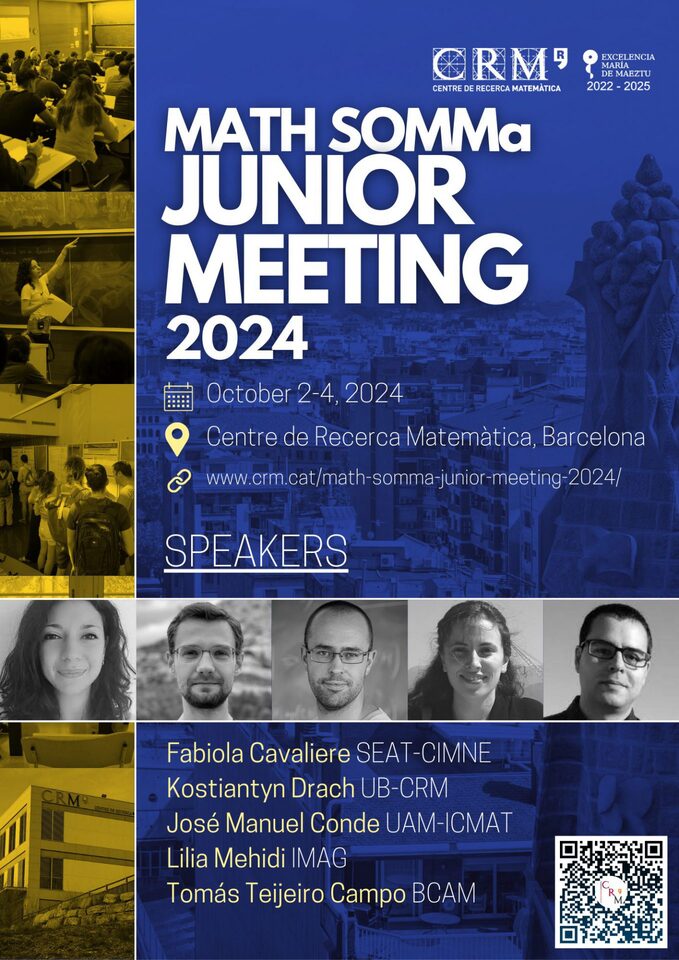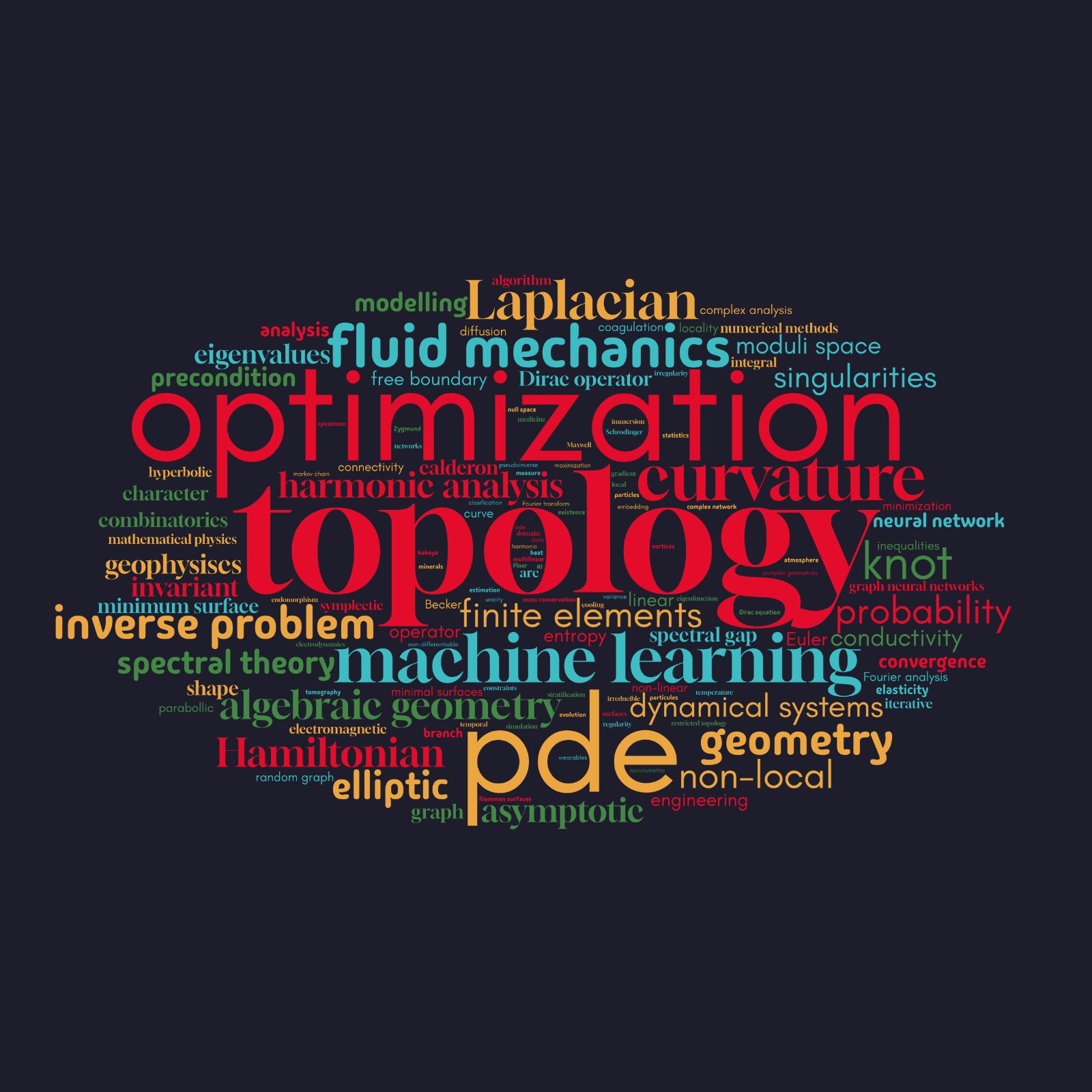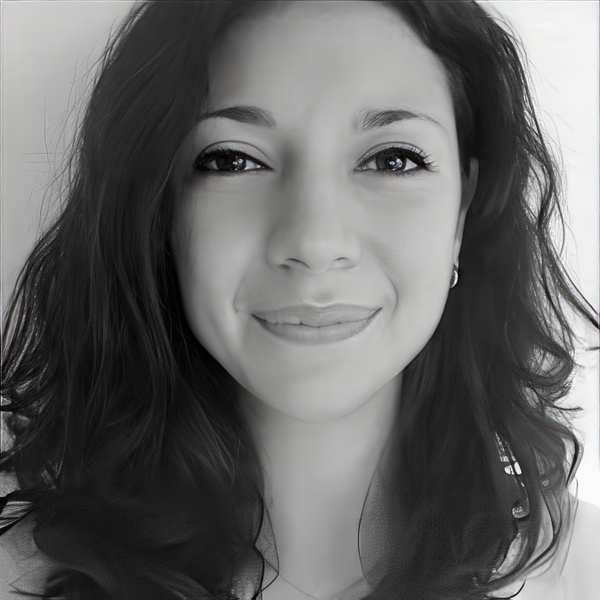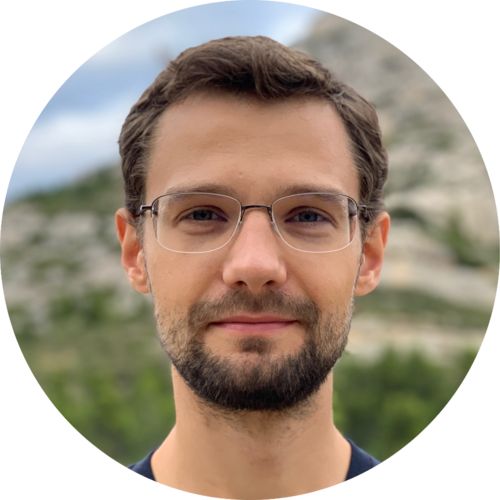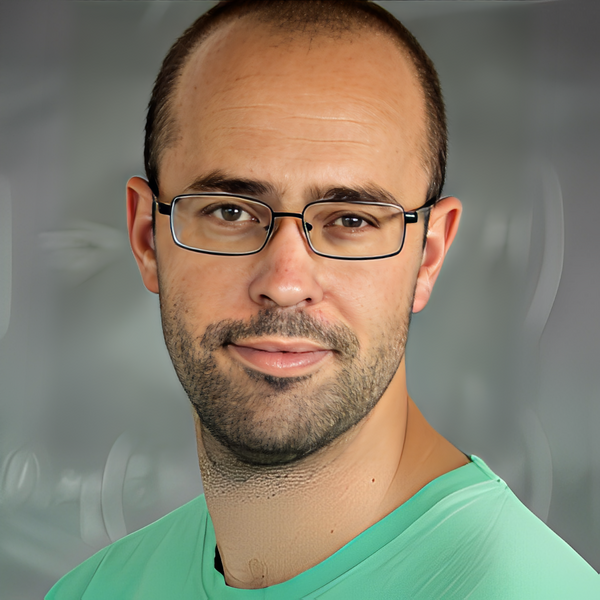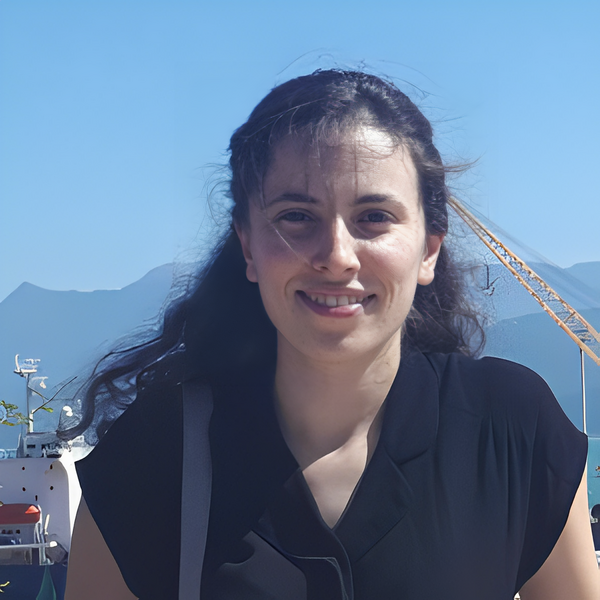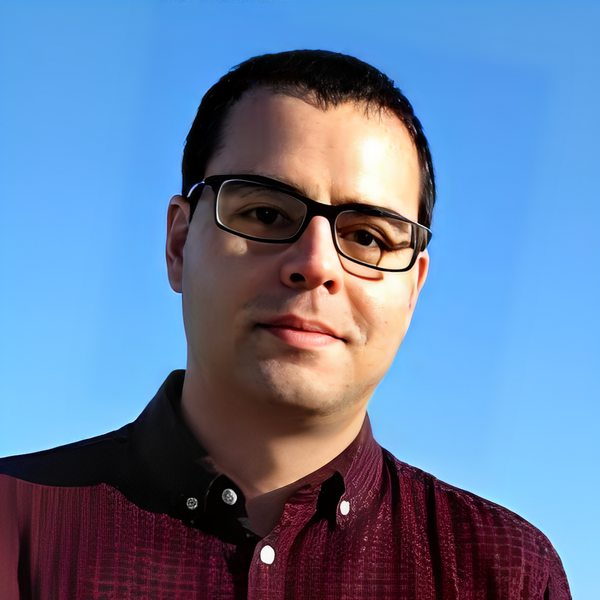REGISTRATION FEE
145€*
* SOMMA centres have available grants to cover registration costs for their PhD students and postdocs, check with your centre if it applies to you.
** Registration includes lunch and dinner on Thursday, and the Wine & Cheese.
Math SOMMa Junior Meeting
Sign into October 04, 2024
- Deadline to apply for talk/poster: June 2nd, 2024
- Acceptance of talk/poster participation will be announced by the end of June 2024
- Deadline for participation: September 18th, 2024
- If you are part of a SOMMA centre, check with your institution regarding coverage for your registration.
- Registration includes lunch and dinner on Thursday, and the wine & cheese
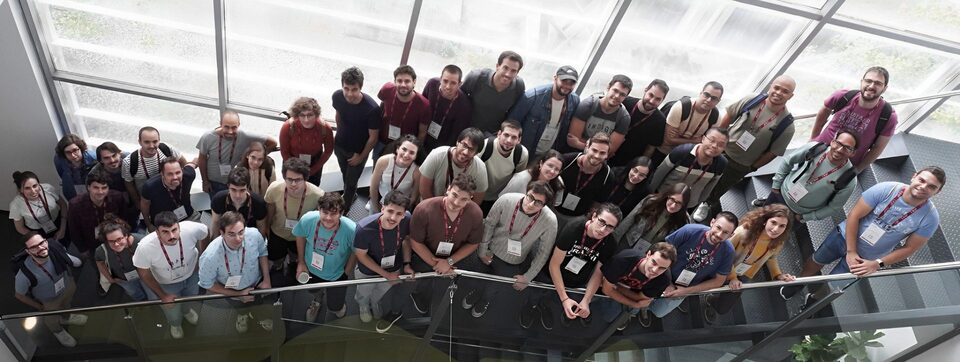
Photo Gallery
interaction graph & wordcloud
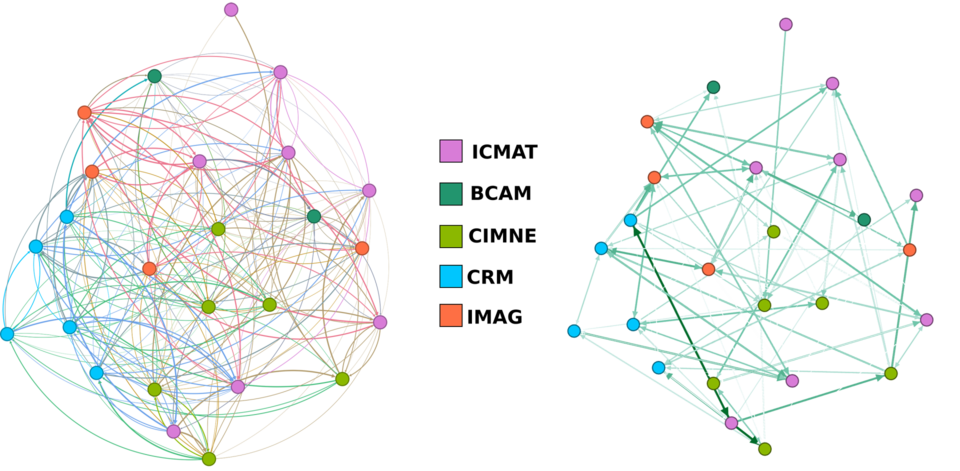
Our diverse program is designed to stimulate intellectual exchange and networking. It features a mix of plenary sessions, contributed talks, and a dynamic poster session. Alongside these, we have planned a series of complementary activities to foster networking and collaboration.
We warmly invite you to be an active participant, whether by presenting your latest research, joining in enriching discussions, or simply immersing yourself in this engaging community.
Join us in Barcelona for an unforgettable experience of learning, collaboration, and growth!
Alex Ferrer | CIMNE
María Ángeles García Ferrero | ICMAT
Roser Homs | CRM
Anna Jové | UB
Tomás Sanz Perela | UB
Niccolò Tassi | IMAG
Paloma Bengoechea | UB-CRM (Chairwoman)
Daniel Eceizabarrena | University of Massachusetts
Mario García Fernández | UAM-ICMAT
Matteo Giacomini | CIMNE
Hristo Inouzhe | BCAM
Tamar Mesablishvili | IMAG
Guillem Perarnau | UPC-CRM
Pedro Tradacete | ICMAT
The Algebraic PGD Toolbox to optimize the design of a vehicle: progress and challenges
Fabiola Cavaliere
SEAT-CIMNE
Abstract
The automotive design process is complex and time-consuming, requiring collaboration between engineers from different areas of expertise to predict and optimize every aspect of the product. Meeting numerous targets and regulations while keeping up with the fast-paced global market adds further challenges. To remain competitive, automotive companies must improve development efficiency by reducing time-to-market and production costs without compromising quality. Simulation-based studies are crucial in the early design phase, but the extensive computational requirements of detailed vehicle models make them impractical for exploring the entire design space. Therefore, the industry persists in employing trial-and-error approaches, limiting design exploration to a few thousand variants out of billions of possibilities, thus potentially missing better solutions. A possible solution is represented by ROM technique that can be employed to allow multidimensional design exploration.
This work introduces an innovative methodology to assess the noise and vibration (NVH) performance of car-body structures. NVH simulation engineering plays a critical role in ensuring that the product meets noise and vibration criteria, thereby improving comfort, quality, and customer satisfaction. This target is highly influenced by the global static and dynamic stiffness of the vehicle body structure, making it extremely sensitive to changes in design parameters. To address this challenge, the proposed approach extends the well-known Proper Generalized Decomposition (PGD) technique to solve parametrically the dynamic and static analysis of a structure characterized by material and/or geometric design variables. The main idea is to construct a parametric FE model of the structure and then employ a PGD-based parametric solver. By utilizing the proposed method, engineers can develop predictive models capable of rapidly evaluating multiple design configurations, facilitating the identification of optimal choices that meet NVH requirements. The proposed method was developed in the context of the doctoral thesis “Static and dynamic global stiffness analysis for automotive pre-design” (more info at: https://www.lacan.upc.edu/ProTechTion/ ). The thesis was supervised by the Universitat Politècnica de Catalunya (UPC) and Swansea University (SU), in collaboration with the automotive company SEAT S.A. as industrial partner. The project is currently in a “Proof of Concept” stage at SEAT, such that it can be included in the current SEAT workflow.
SHORT BIO
Reverse isoperimetric problems under curvature constraints and their stability
Kostiantyn Drach
UB-CRM
Abstract
SHORT BIO
I am an assistant professor (professor lector) at Universitat de Barcelona and a member of the Centre de Recerca Matemàtica (CRM-Barcelona).
I am a member of a research group in holomorphic dynamics at UB called HoloDyn.
I do research in geometry and dynamics. Some keywords are: holomorphic dynamics, hyperbolic dynamics and geodesic flows, rigidity of dynamical systems, renormalization theory, Riemannian and convex geometry, isoperimetric inequalities.
Schur-type multipliers on Schatten-von Neumann classes as singular integral operators
José Manuel Conde
UAM-ICMAT
Abstract
SHORT BIO
On the topology of compact locally homogeneous plane waves
Lilia Mehidi
IMAG
Abstract
SHORT BIO
AI: The mathematics of self-deception
Tomás Teijeiro Campo
BCAM
Abstract
The impact of “Artificial Intelligence” in science and technology in recent years has been enormous, giving rise to a bubble of overhyped claims and promises that heavily influence the research landscape in fields as diverse as chemistry, medicine or energy, to name just a few. However, it is increasingly evident that there is a dissonance between what AI does and what AI gurus tell us it can do.
In this talk, we will show why AI, and more specifically Machine Learning, is a perfect tool for self-deception, even if we are extremely careful with our experimental methodology. We will discuss the main issues that can lead to overestimated performance results, and illustrate how they appear subtly in more real and “top-level” scientific studies than one would expect.
SHORT BIO
Wednesday 02/10/24 | Thursday 03/10/24 | Friday 04/10/24 | ||||
9:30 | - Reverse isoperimetric problems under curvature constraints and their stability - Kostiantyn Drach UB - CRM | - Schur-type multipliers on Schatten-von Neumann classes as singular integral operators - José Manuel Conde UAM-ICMAT | ||||
10:00 | ||||||
10:30 | On rigidity and symmetry: what finite group actions tell us about aspherical manifolds Jordi Daura Serrano UB | Local behaviour of high energy eigenfunctions of polygonal domains Alba Dolores García Ruiz ICMAT | Brill–Noether Theory of Stable Vector Bundles on Ruled Surfaces Irene Macías Tarrío UB | How to obtain nice PDE properties under poor geometries, via harmonic analysis Pablo Hidalgo Palencia ICMAT | ||
11:00 | Coffee Break | Coffee Break | ||||
11:30 | Overdetermined problems in the sphere and minimal surfaces in the Euclidean ball Diego Alfonso Marín Muñoz IMAG | Topological derivative in constrained optimization problems via the null-space algorithm Jose Antonio Torres CIMNE | CMC-1 surfaces in hyperbolic and de Sitter spaces with Cantor ends Jorge Hidalgo Calderón IMAG | Within-Host Models Unravelling the Dynamics of Dengue Reinfections Vizda Anam BCAM | ||
12:00 | Localised Multilinear Restriction Inequalities Jennifer Duncan ICMAT | Bifurcation analysis of a two-infection transmission model with explicit vector dynamics Akhil Kumar BCAM | On the semi-additivity of the 1/2-symmetric caloric capacity Joan Hernández García UAB | Phase-field damage models via homogenization Gerard Villalta CIMNE | ||
12:30 | The Mittag-Leffler theorem for proper minimal surfaces and directed meromorphic curves Tjaša Vrhovnik IMAG | Iterative solvers and reduced-order modelling for the simulation of lattice structures Raul Rubio CIMNE | On the topology of compact locally homogeneous plane waves - Lilia Mehidi IMAG CLOSING | |||
13:00 | Lunch | |||||
13:30 | ||||||
14:00 | ||||||
14:30 | REGISTRATION 14:30-15:00 | |||||
15:00 | WELCOME 15:00-15:30 | AI: The mathematics of self-deception - Tomás Teijeiro Campo BCAM | ||||
15:30 | The Algebraic PGD Toolbox to optimize the design of a vehicle: progress and challenges - Fabiola Cavaliere SEAT-CIMNE | |||||
16:00 | Decomposition of complete 3-manifolds of positive scalar curvature with subquadratic decay Teo Gil Moreno de Mora Sardà UAB | Periodic motions in Electrodynamics: the Infinite Wire model Manuel Garzón ICMAT | ||||
16:30 | Coffee Break | Coffee Break | ||||
17:00 | Abelian varieties that split modulo all but finitely many primes Enric Florit Zacarías UB | Pointwise convergence of the Klein-Gordon flow Pablo Merino San José BCAM | Speed Networking In this section, participants will be randomly paired and each will describe their research topic for two minutes. After this, partners will be switched randomly and the process will be repeated. Participants are required to record the names of the partners they meet. At the end of the session, a graph illustrating the interactions between research subareas and research centers will be created. The activity is planned to take place outdoors, weather permitting. | |||
17:30 | Character varieties in knot theory Alejandro Calleja ICMAT | Asymptotic estimates for the Dirichlet heat equation in exterior domains Alejandro Garriz IMAG | ||||
18:00 | Wine & Cheese | |||||
18:30 | ||||||
19:00 | ||||||
19:30 | ||||||
20:00 | Dinner | |||||
Poster Session
-
- Deadline to apply: May 12th, 2024
- Decisions will be announced by the first two weeks of June, 2024
| Name | Institution |
|---|---|
| Jose Antonio Torres | CIMNE |
| Raul Rubio | Centre internacional de mètodes numèrics a l\'enginyeria (CIMNE)) |
| Teo Gil Moreno de Mora Sardà | Université Paris-Est Créteil |
| Gerard Villalta i Quintana | CIMNE |
| Alex Ferrer | CIMNE |
| Tomás Sanz Perela | Universitat de Barcelona |
| Jordi Garriga Puig | Universitat de Barcelona |
| Lluís Llàcer Sansaloni | Universitat de Barcelona |
| Kostiantyn Drach | Universitat de Barcelona |
| Irene Macías Tarrío | Universitat de Barcelona |
| Enric Florit Zacarías | Universitat de Barcelona |
| Jordi Daura Serrano | Universitat de Barcelona |
| Anna Jové Campabadal | Universitat de Barcelona |
| Joan Hernández García | Universitat Autònoma de Barcelona |
| Giorgio Zamberlan | Universitat Politècnica de Catalunya |
| Luis Tao | Universitat Politècnica de Catalunya |
| Enrico Savona | Universitat Politècnica de Catalunya |
| Pau Gabarrell | Universitat Politècnica de Catalunya |
| Guillem Perarnau Llobet | Universitat Politècnica de Catalunya |
| Matteo Giacomini | Universitat Politècnica de Catalunya |
| María de Leyva Elola-Olaso | Universitat Politècnica de Catalunya |
| Inmaculada Benítez Berral | Universidad de Granada |
| Helena Del Río Fernández | Universidad de Granada |
| Jorge Hidalgo Calderón | Universidad de Granada |
| Tjasa Vrhovnik | Universidad de Granada |
| Diego Alfonso Marín Muñoz | Universidad de Granada |
| Alejandro Garriz | Universidad de Granada |
| Juan Antonio Villegas | Universidad de Granada |
| Niccolo Tassi | Universidad de Granada |
| Jose Manuel Conde Alonso | Universidad Autónoma de Madrid |
| Roser Homs Pons | Centre de Recerca Matemàtica |
| Javier Guillán Rial | Centre de Recerca Matemàtica |
| Joaquim Duran i Lamiel | Centre de Recerca Matemàtica |
| Alba Dolores García Ruiz | ICMAT |
| Manuel Garzón Martínez | ICMAT |
| Jennifer Duncan | ICMAT |
| Alejandro Calleja | ICMAT |
| Pablo Hidalgo Palencia | ICMAT |
| Javier Peñafiel Tomás | ICMAT |
| María Ángeles García-Ferrero | ICMAT |
| Fan Zheng | ICMAT |
| Vizda Anam | Basque Center for Applied Mathematics |
| Tomas Teijeiro | Basque Center for Applied Mathematics |
| Carlo Delfin Estadilla | Basque Center for Applied Mathematics |
| Akhil Srivastav | Basque Center for Applied Mathematics |
| Bruno Valdemar Guerrero Borges | Basque Center for Applied Mathematics |
| Pablo Merino San José | Basque Center for Applied Mathematics |
| Javier de la Bodega | Basque Center for Applied Mathematics |
ACKNOWLEDGEMENTS
UPF | UB | UPC | UAB
Paying by credit card
ON-CAMPUS AND BELLATERRA
BARCELONA AND OFF-CAMPUS
The organisation has blocked some rooms for SOMMA participants. If you wish to make a direct booking, you must contact before July 15 directly to: reservas@hotelexecampus.com and indicate that you will be a participant of the “SOMMA JUNIOR MEETING”, they will tell you the steps to follow to complete the booking and will confirm rates.
|
For inquiries about this event please contact the Scientific Events Coordinator Ms. Núria Hernández at nhernandez@crm.cat
|


